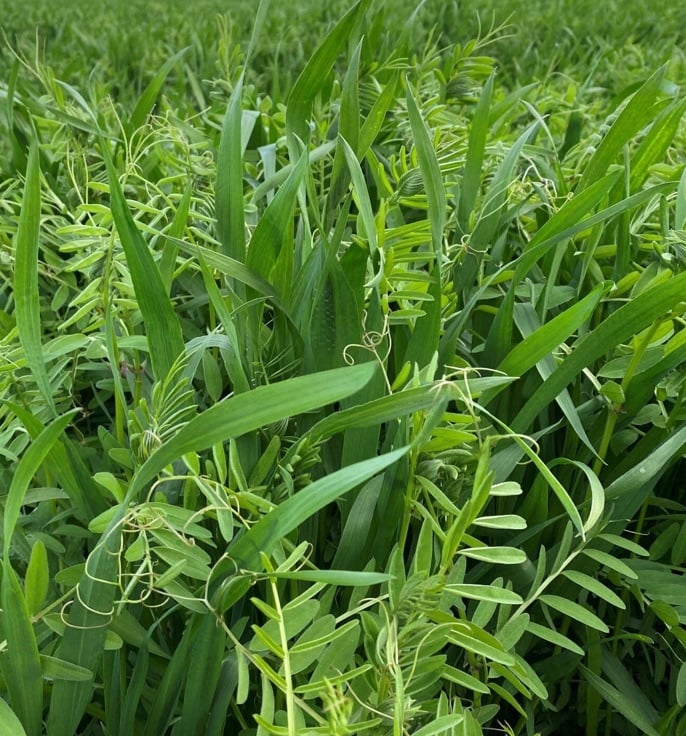SOILS
Healthy soils are essential in the Riverine Plains. Our project work helps farmers protect and improve their soils, to help their systems thrive.
For more information contact
WHY WE ARE TACKLING SOIL CHALLENGES ACROSS THE RIVERINE PLAINS
Soils are the key to productive, profitable and sustainable farming systems. Farmers recognise the importance of maintaining and improving their soil resources for long-term sustainability.
Soils in the Riverine Plains vary from sands to loams and heavy clays and everything in between. They support winter cereals, canola, pulses and grass and legume-based pastures, as well as irrigated summer crops such as maize. Maximising crop and pastures production from our variable soil types relies on managing soil constraints, protecting soils from damage and improving soil fertility and health.
Poorly structured soils and constraints such as soil acidity and sodicity occur frequently in the Riverine Plains region. These can cause sensitive crops to yield poorly, with weeds and other pests and diseases becoming problematic in untreated paddocks. Understanding and managing these issues at a paddock and whole-farm level is key to overcoming soil issues and improving soil health in the long term.
Riverine Plains has been involved in soil-based projects that focus on improving soil health and farmers’ understanding of how they can better manage and maintain their soils. These projects aim to promote good soil structure and water holding capacity, as well as healthy populations of soil biota for nutrient cycling. Having healthy, resilient soils is also key to managing extreme conditions, such as drought and extended wet periods.
Research highlights
- Riverine Plains project work highlights the importance of soil testing to depth to identify and treat acid soils in both the topsoil and subsurface layers
- pH, CEC and soil organic carbon can all affect how much moisture is stored in soils – healthier soils are more likely to be able to store moisture for use later in the season
- Splitting deep nitrogen samples (for example 0-30cm and 30-60cm) will identify nitrogen’s location in your soil profile
Building soil resilience and carbon by increasing crop diversity
We are identifying ways to build resilient soils and enhance carbon stocks in cropping systems, using a range of species in cover cropping and companion crop plantings.

OUR SOIL RESEARCH
Our project work is helping to advance solutions to complex soils-related issues and address the challenges that farmers currently face.
-
This project aims to bring the past seven years of Soil CRC research effort in soil constraint modelling and analytics into the hands of growers and other agricultural decision makers.
-
This project is evaluating innovative soil technologies and amelioration techniques to address local soil constraints in the Riverine Plains.
-
This project is expanding data from a long-term cover and companion cropping trial at Burramine to test the impact of diverse species on soil health and stored soil water.
-
This project is extending results from a Soil CRC project, focussing on the benefits, challenges and economic realities of using cover and companion crops to boost soil health for drought resilience in the Riverine Plains.
-
This project is part of the National Industry-Led Carbon Farming Outreach Program which is supporting farmers and land managers to reduce emissions and explore carbon farming opportunities.
-
This project supports NSW farmers in the Riverine Plains to explore their soil carbon potential and showcases eligible land management practices best suited for potential soil carbon projects.
-
This project will help Australian farmers identify and ameliorate constrained soils, helping to improve soil health and productivity.
-
Good seasons, stubble retention and tight cereal rotations have favoured a build-up of Fusarium crown rot in the Riverine Plains. Crown rot can cause significant yield loss, and we are investigating the potential link between it, subsurface acidity and different stubble management techniques.
-
This project aims to develop a computer-based technology to help farmers find tailored solutions when managing multiple soil constraints like sodicity, acidity, and salinity. The aim is to increase productivity and profitability using precise, data-driven strategies.
-
This project is identifying ways to build resilient soils and enhance carbon stocks in cropping systems, using a range of species in cover cropping and companion crop plantings.
WHAT’S ON
Discover past and upcoming events – from webinars and seminars to workshops and field days.
-
Thursday 26 February 2026
Dookie Recreation Reserve -
Friday 13 February 2026
Urana Sportsgrounds -
Thursday 15 May 2025
-
Tuesday 15 October 2024
-
Wednesday 10 April 2024
-
Wednesday 21 June 2023
-
Tuesday 13 June 2023
NEWS
Discover unique perspectives on agriculture from across the Riverine Plains.
